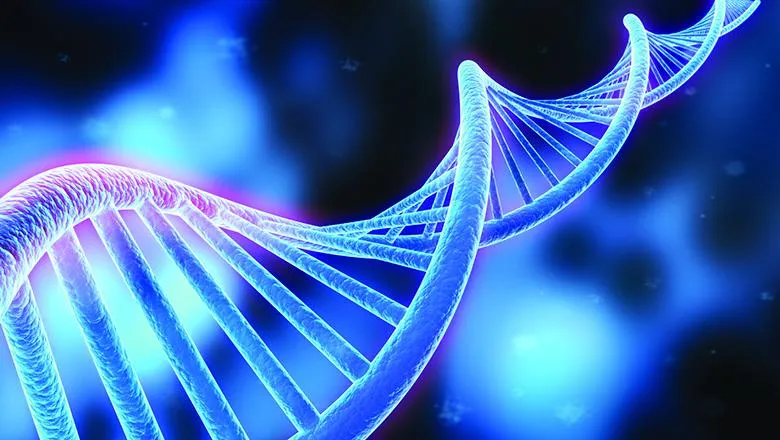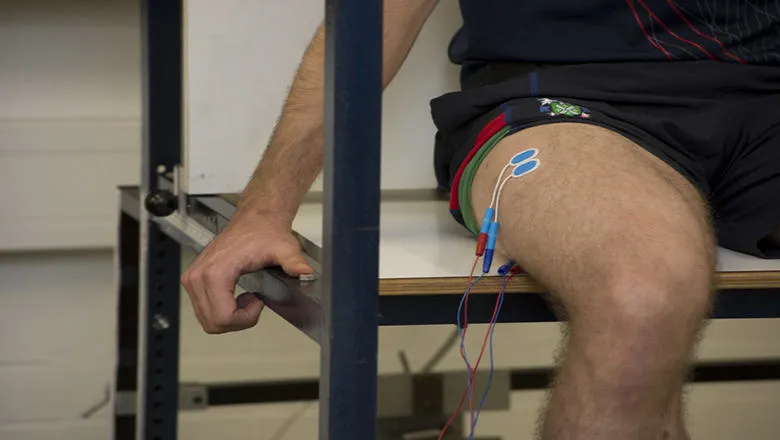07 September 2018
Elite athletes like King's alumna Dina Asher-Smith represent the peak of human physical performance. But what makes these individuals different from the rest of us? Is it even possible for weekend warriors to reach their level?
King’s alumna Dina Asher-Smith (History 2017) recently won three gold medals at the 2018 European Championship, achieving the joint fastest time in the world for 2018.
Elite athletes like Dina represent the peak of human physical performance. But what makes these individuals different from the rest of us? Is it even possible for weekend warriors to reach their level?
Dr Richard Bruce, Programme lead for the BSc in Sport & Exercise Medical Science at King’s, and researcher in the Centre for Human & Applied Physiological Sciences, explores the link between genetics and physical training.
‘By its very definition, not everyone can become an elite athlete. However, there are certain genetic, physical and psychological characteristics that many top performers seem to have in common.’

Genetics
It seems that our basic genetic make-up is at least partly responsible for athletic performance. Some people appear to inherit genes that help them excel in endurance sports, whereas others may be predisposed to perform better as sprinters or ‘power’ athletes. Growing scientific evidence—often based on studies exploring similarities and differences within families—suggest that genetic factors could account for up to 66 per cent of the differences seen in athletic performance between individuals.
One such gene is ACTN3 which partly influences the performance of fast-twitch muscle fibres in the human body. One variation of this gene is found at a higher frequency in groups of male and female sprinters. This variation generates fast and forceful contractions of skeletal muscle, enabling high power – a key to high-level sprint performance. In contrast, this variation is found at lower frequencies in endurance athletes.

Physical training
While genetic make-up may be important, it’s not a guarantee of success! Not even the most genetically-gifted athletes can perform at an elite level without considerable training and practice.
Perhaps the most obviously adaptable trait through physical training is muscle size. Repeatedly lifting weights will result in the muscles used becoming larger and stronger, and eventually being able to lift heavier weights. The heart is also made of muscle (cardiomyocytes) and is equally adaptable. Endurance training places a significant load on the heart by increasing the size and wall thickness of the left ventricle, allowing more blood to be delivered to exercising muscles.
However, an important principle of training is to ensure that the changes that occur to the body are specific to the sport you’re trying to improve in. For example, if you want to run a 5k marathon, lifting weights or taking spin classes won’t be as beneficial as actually running.

Mental strength and perseverance
To succeed in sport at an elite level, athletes need to make a huge physical and mental commitment. The perseverance to train and perfect a skill requires deliberate and consistent practice over. This mental toughness is what gives elite athletes the ability to perform at their very best on all occasions despite pressure from teammates, coaches, media and supporters.
A golfer can practice a three-foot putt every day hundreds of times, but it takes a huge amount of mental control and focus to make that same putt in front of thousands of people when a major championship title is on the line. The difference between sinking the putt on this occasion compared to every other time comes down to mental strength and self-belief.
So, can anyone become an elite athlete?
Successful elite athletes inevitably have natural talent and will likely have an underlying genetic predisposition for high-level physical performance. However, success also demands countless hours of exercise training and specific interventions aimed at maximising performance.
Ways to optimise this performance, along with evidence-based ways to encourage the general population to increase their level of physical activity, are of great interest to exercise scientists.

If you want to find out more about the work in this area…
King’s has launched a new BSc in Sports and Exercise Sciences which will provide scientific foundations of human performance and exercise, alongside an in-depth understanding of the mechanisms, treatment and prevention of disease. You can read an overview and book in for a taster session on the course webpage.
Dr Richard Bruce is a Lecturer in Exercise and Environmental Physiology within the Centre for Human & Physiological Sciences. The Centre is focused on the functioning of the human body, its ability to respond and adapt to change to the myriad of challenges it may face throughout life, and recently published their findings that a lifetime of regular exercise slows down ageing.
